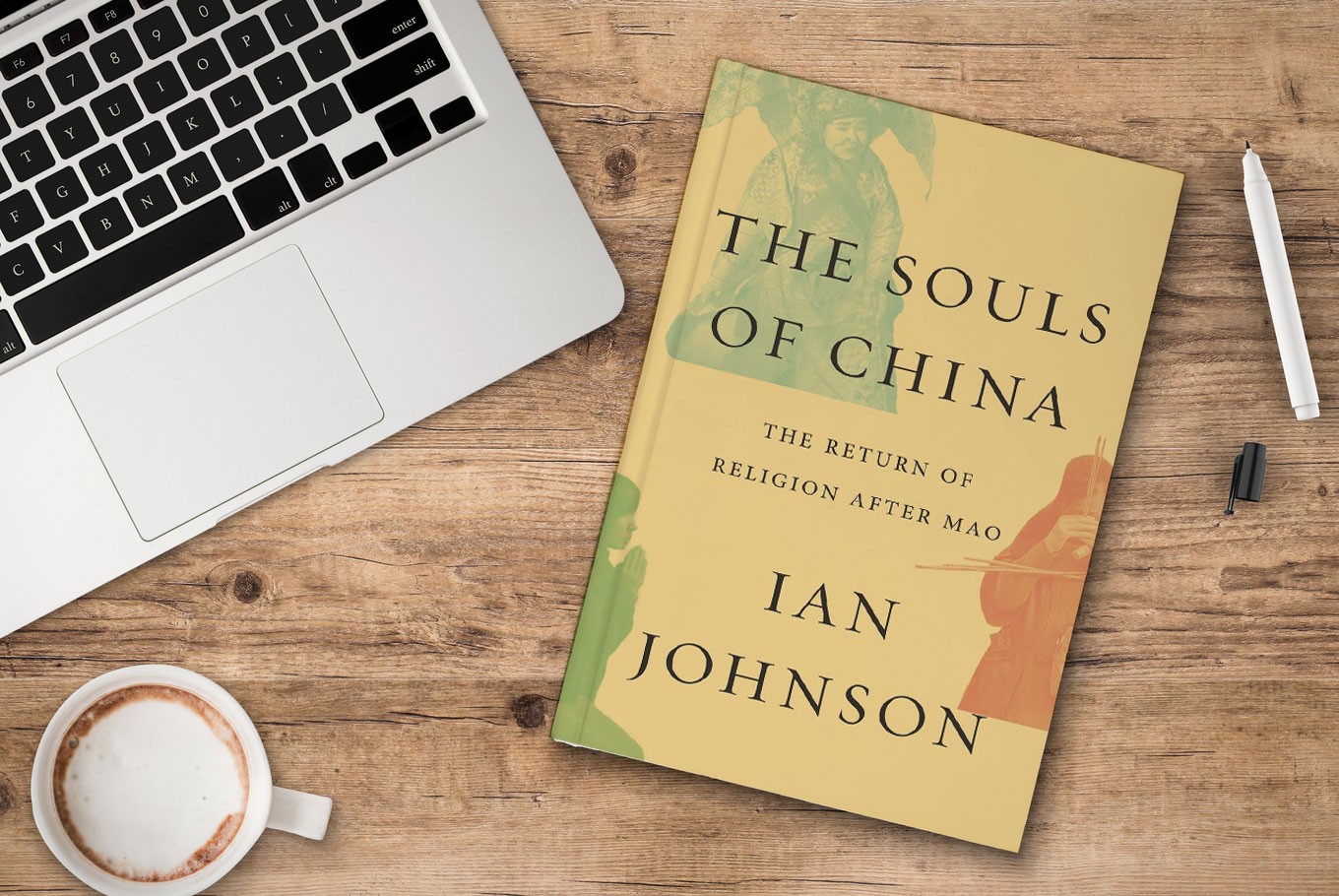Popular Reads
Top Results
Can't find what you're looking for?
View all search resultsPopular Reads
Top Results
Can't find what you're looking for?
View all search resultsNew book explores revival of religious life in China
Change text size
Gift Premium Articles
to Anyone
D
espite its image as a predominantly secular nation, China has seen a revival of religious beliefs and practices in the decades following the Cultural Revolution, author and longtime China correspondent Ian Johnson maintains in his new book, "The Souls of China: The Return of Religion After Mao."
"Our mental image of China is an economic superpower, or maybe a growing military power (or as) the world's factory or a communist country," Johnson told Kyodo News. "But if we want to understand them, we also have to understand the people's inner lives, their spiritual lives."
After the ascendance of China's Communist Party in the 1949 civil war, and particularly in the later years of leader Mao Zedong through the mid-1970s, China attempted to eradicate its own religious traditions as well as imported practices in the name of state progress, an effort that included the systematic destruction of temples, churches and mosques.
Though successive administrations have struck a more conciliatory tone -- the party in its influential Document 19 in 1982 advocated "respect for and protection" of religious practice "until that future time when religion will itself disappear" -- the government's stance is far from an open embrace, with many church groups remaining unregistered or practicing in secret to avoid surveillance.
"When touring Chinese cities, even old cities like Beijing, you don't see a lot of signs of religion," Johnson said, explaining that churches are often housed in places like nondescript office buildings. "It's not like if you go to a European city and in the middle of it is a cathedral."
Read also: SBY launches book featuring his tweets
Having glimpsed China's burgeoning spiritual life in the 1990s while volunteering for an organization that rebuilt Daoist temples, Johnson dug into the topic further when he started research for the current book in 2010.
"The Souls of China" details his encounters with diverse groups across the country including a Beijing family connected to a major Daoist pilgrimage, funeral performers in an increasingly urban Shanxi province, and a Christian congregation in Chengdu that exists in a legal gray area.
"People really want to be understood," said Johnson, 54, a native of Canada who was raised in the Christian faith. "I felt a lot of commonality with people (in China) and realized there are a lot of shared values even though faiths and cultures may be quite different."
Despite the established presence of various religions, it can be difficult to classify and accurately number the country's faithful.
As Johnson explains in his book, the conceptual framework around spirituality in the West is very different from the foundations of faith in China, where even the words for "religion" ("zongjiao") and "superstition" ("mixin") did not exist prior to modernizing efforts roughly a century ago.
Rather than self-identifying as "religious" in the Western sense, many Chinese have been inclined to consider themselves as having "faith" ("xinyang") or subscribing to spiritual ideas that do not necessarily fit into a major religion.
Read also: James Patterson plans true crime book on Aaron Hernandez
With these difficulties in mind, Johnson weighs the results of various recent studies and reaches an estimate of 300 million religious adherents -- over 20 percent of the country's population -- with a two-thirds majority of believers being Buddhists or Daoists, followed by growing numbers of Protestant Christians (50-60 million) and Muslims (20-25 million). Additionally, there are an estimated 175 million Chinese who engage in practices related to folk religions or esoteric traditions.
The author sees in this upsurge not just an embrace of lost customs or concern for the afterlife, but a country-spanning search for meaning in which, as he writes, "hundreds of millions of Chinese are consumed with doubt about their society" and consequently "turning to religion and faith for answers that they do not find in the radically secular world constructed around them."
Apart from offering comfort in the midst of a rapidly changing society, religion also "inspires people to action," Johnson said, adding that "almost all religions have some sort of idea of higher principles, something higher than government."
It remains uncertain how the spiritual growth of China's masses will fit with the designs of the country's leadership. Johnson notes that government initiatives have sought to promote morality, but primarily as a social corrective after long periods in which devotion only to Mao or materialism prevailed.
In this officially sanctioned version of spiritual revival, Chinese president Xi Jinping and the Communist Party have been most comfortable with home-grown religions practiced in an apolitical manner.
Read also: Fans in Japan rush to get Murakami book with esoteric title
While many religious groups in China keep a relatively low profile, the numbers of active Buddhist and Daoist temples in the country have doubled since the 1990s, coming to roughly 33,000 and 9,000 respectively by 2014.
Xi also emphasized at a top-level religion conference in Beijing in 2016 that the government must "guard against overseas infiltrations via religious means."
"I think the government would like to make sure that the religions are more closely regulated," said Johnson, who won a Pulitzer Prize in 2001 for his reporting about China's crackdown on the Falun Gong spiritual group.
The push for religious freedom against the imposition of state control is something he views as a possible source of conflict in the future.
Religions with foreign ties or potential to encourage political activism or social change have met with the strongest backlash from the Communist Party, whose members are forbidden from taking part in religious practices according to official policy.
"The Souls of China," Johnson's third book, was published in April in the United States and Britain.











